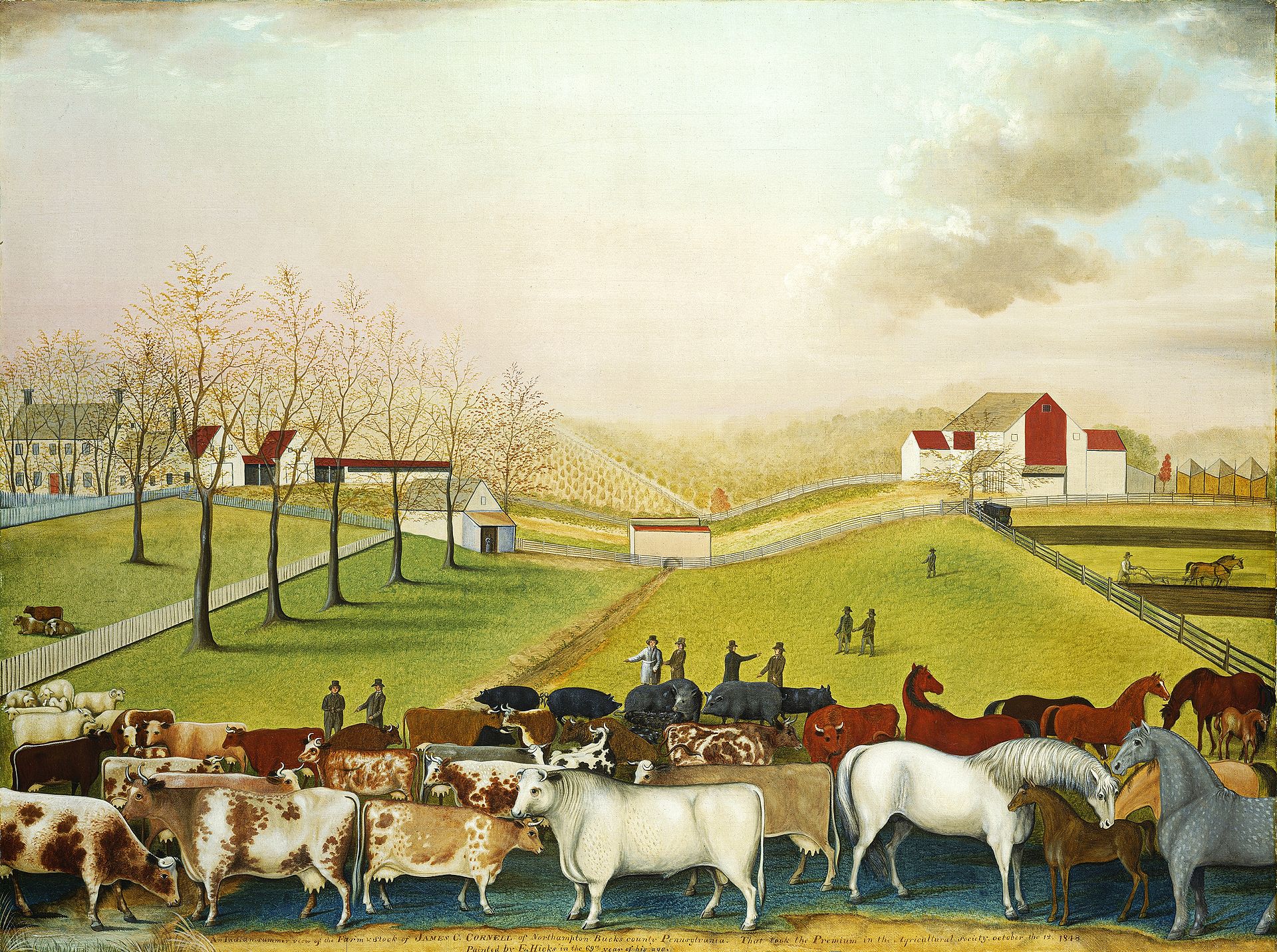On Farms and Farmers

At a certain point it’s not so much farming as it is engineering. As a friend from college studying agricultural economics wrote me recently, “The cleanest and most environmentally conscientious dairies that I have ever witnessed are not the picturesque 30 cow farms, but the large 1,000 cow farms that turn every scrap of manure into electricity or fertilizer for next year’s silage.” I believe it. But it highlights something at the heart of any discussion of agriculture in the United States, and at the heart of our relationship to nature in modernity: Should we see farming as primarily a mechanism for the production of calories, and let improvements in technology lead our processes, or should we see it as a mode of life, a type of being human?
The family operating the picturesque 30-cow dairy is a family of farmers. We can easily imagine, without needing to romanticize it too much, their life—limited and ordered by the needs of the cows and the grazing lands on which they live. The other set-up is a machine for producing milk, a conscientious one, that manages its wastes well. The former is increasingly rare, and the latter is probably rare, too, but the type of farm that it is an exemplary version of is increasingly common, and the two are in tension. There is a cost to everything, and massive increases in yield come with a change of what it means to be a farmer. Agriculture is in effect as much about growing us into a certain kind of human being, nourishing a culture, as it is growing crops. Animal husbandry husbands us, too. Our methods of domestication have always been self-domestications, the creation or preservation of a human type. What do we want to be? That is the question that should guide our doing, which is our becoming.
That reply came in response to a post of mine. As “State of the Union” readers have probably gathered, I also blog for American Compass’s “The Commons.” My latest piece over there is an invective of sorts against our not counting the cost—not noticing—that we have allowed technological efficiency and political-economic incentives to supplant a more traditional idea of who and what the farmer or the shepherd is. We have allowed our memory of the independent free-holding farmer, and a use of improving technology that complemented and extended a mode of life, to distract us from the way the modern food (and health care) economy leaves us as much a tool or part in a larger machine as any till or cow.
In pursuit of the relief of man’s estate, the farm and the homestead have been sundered. The economy of the Greek household, the Frankish feudal order, the English country squire, the American pioneer—the story of the western world’s political liberties has also been the story of independent agrarianism, citizen farmers, epitomized in Cincinnatus and Washington. But every step towards our industrialized agriculture, with its corporate centralization and chemical-dependent monocultures, has been a turn away from that tradition, each tread a growing echo of the ancient despotisms of the Fertile Crescent and pre-Columbian Mesoamerica.
Comments